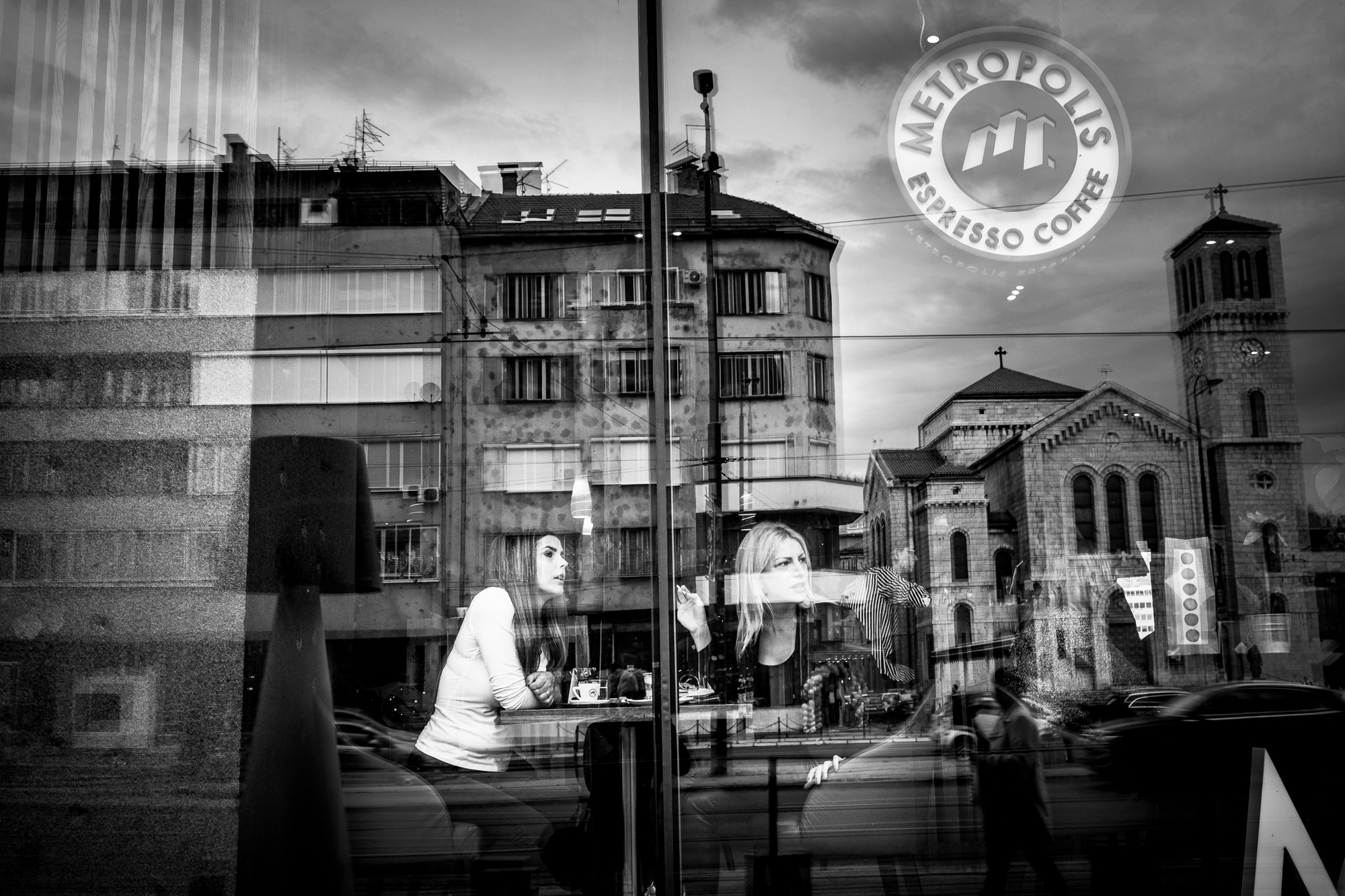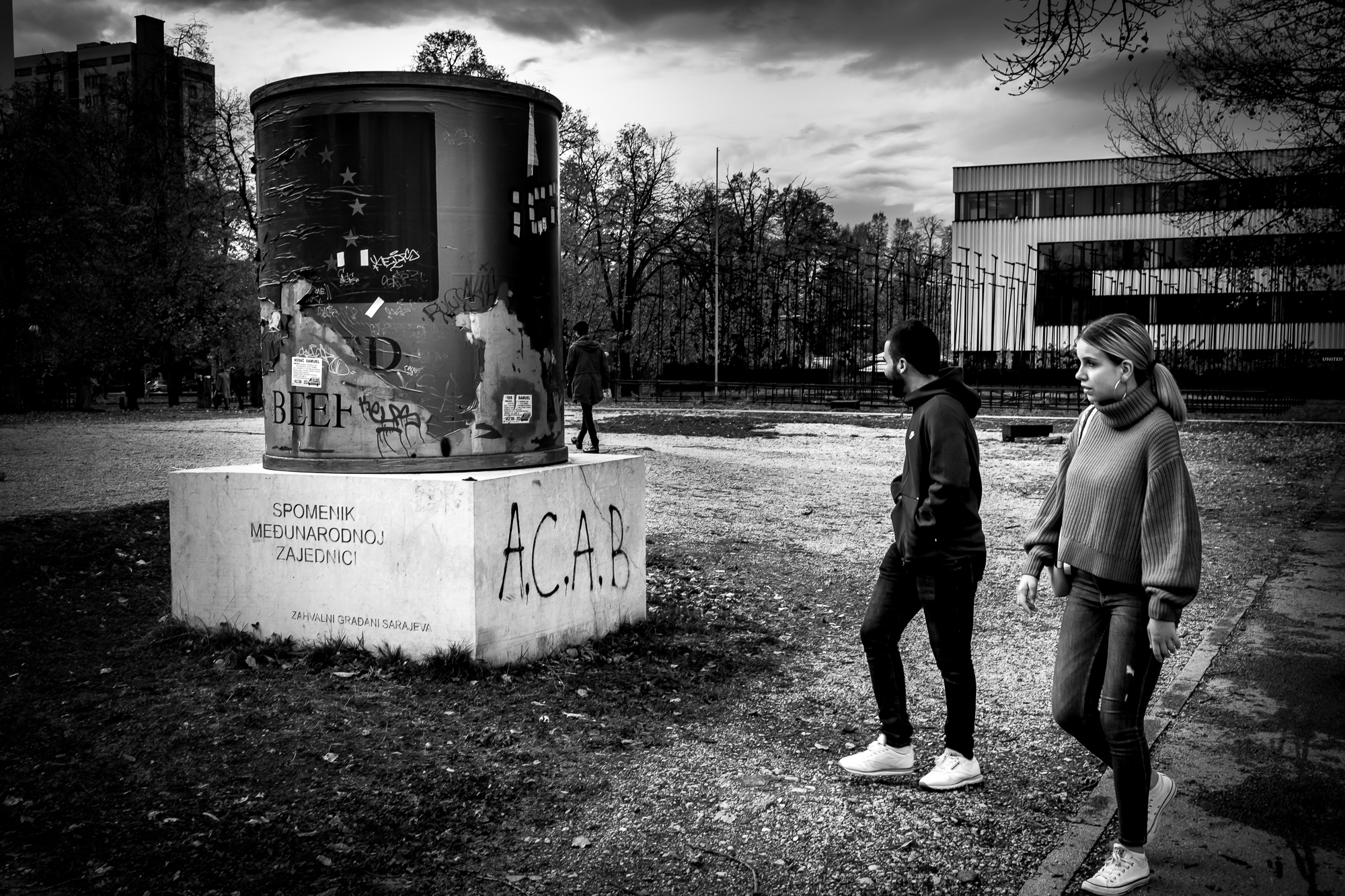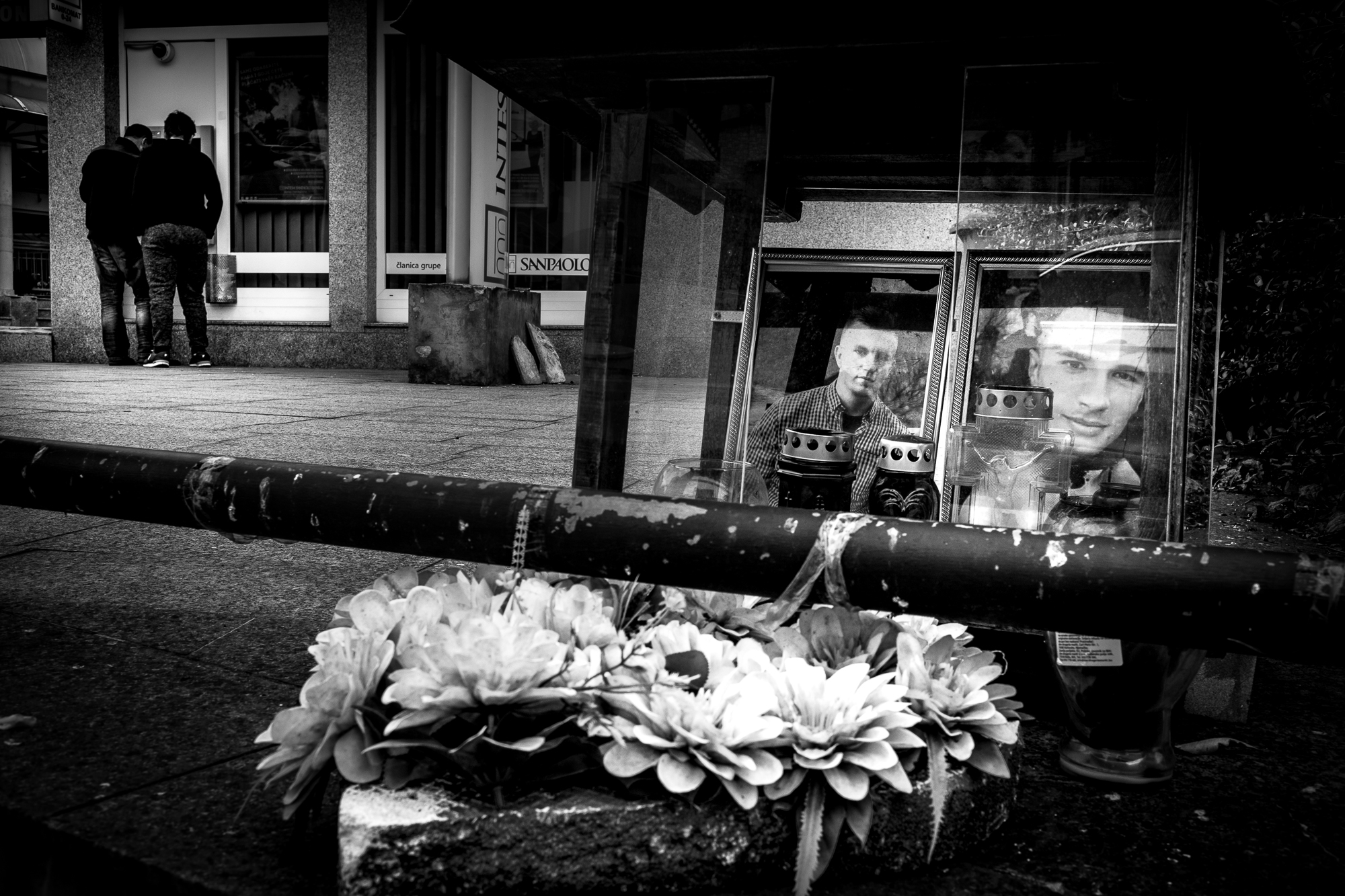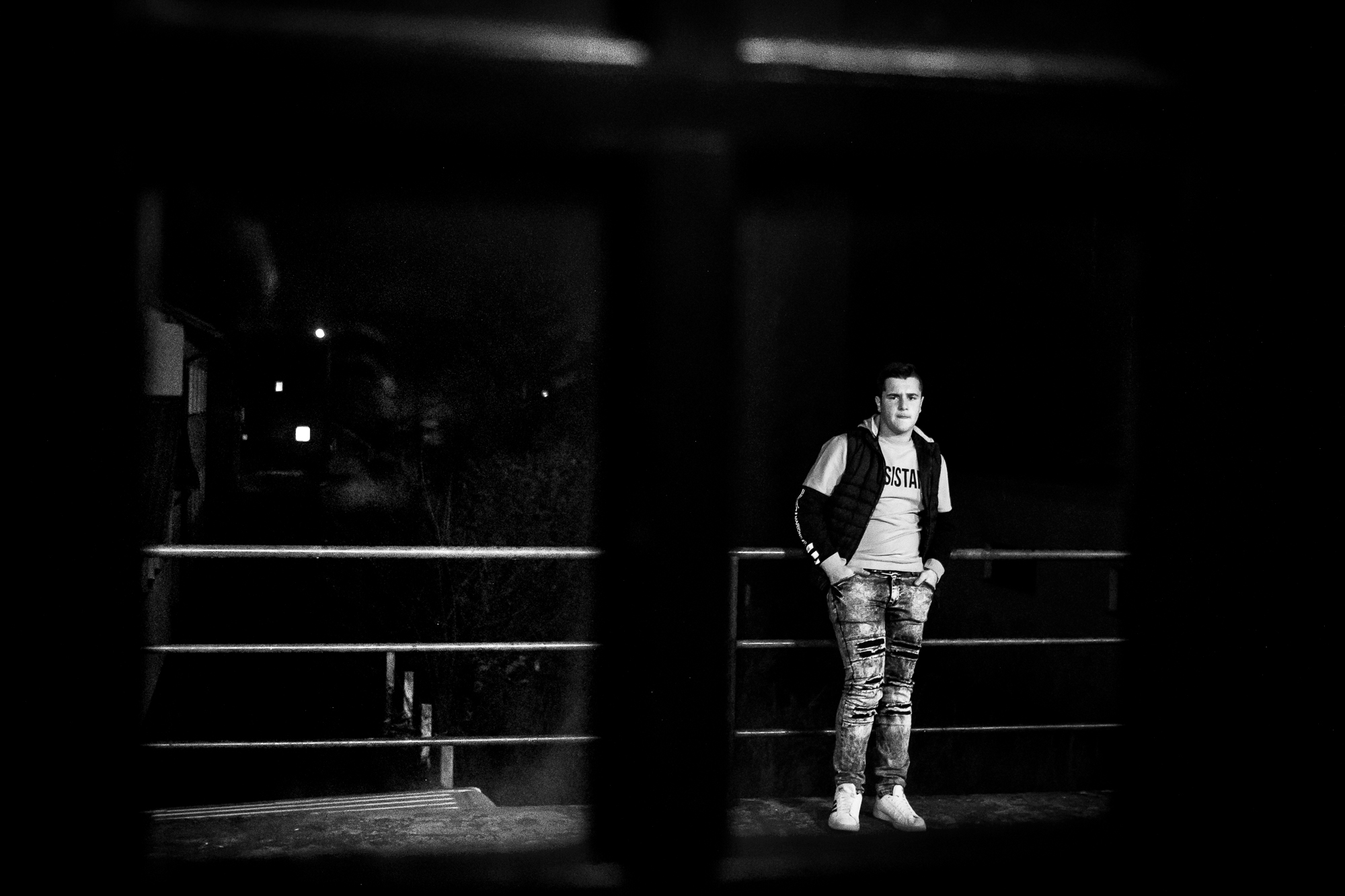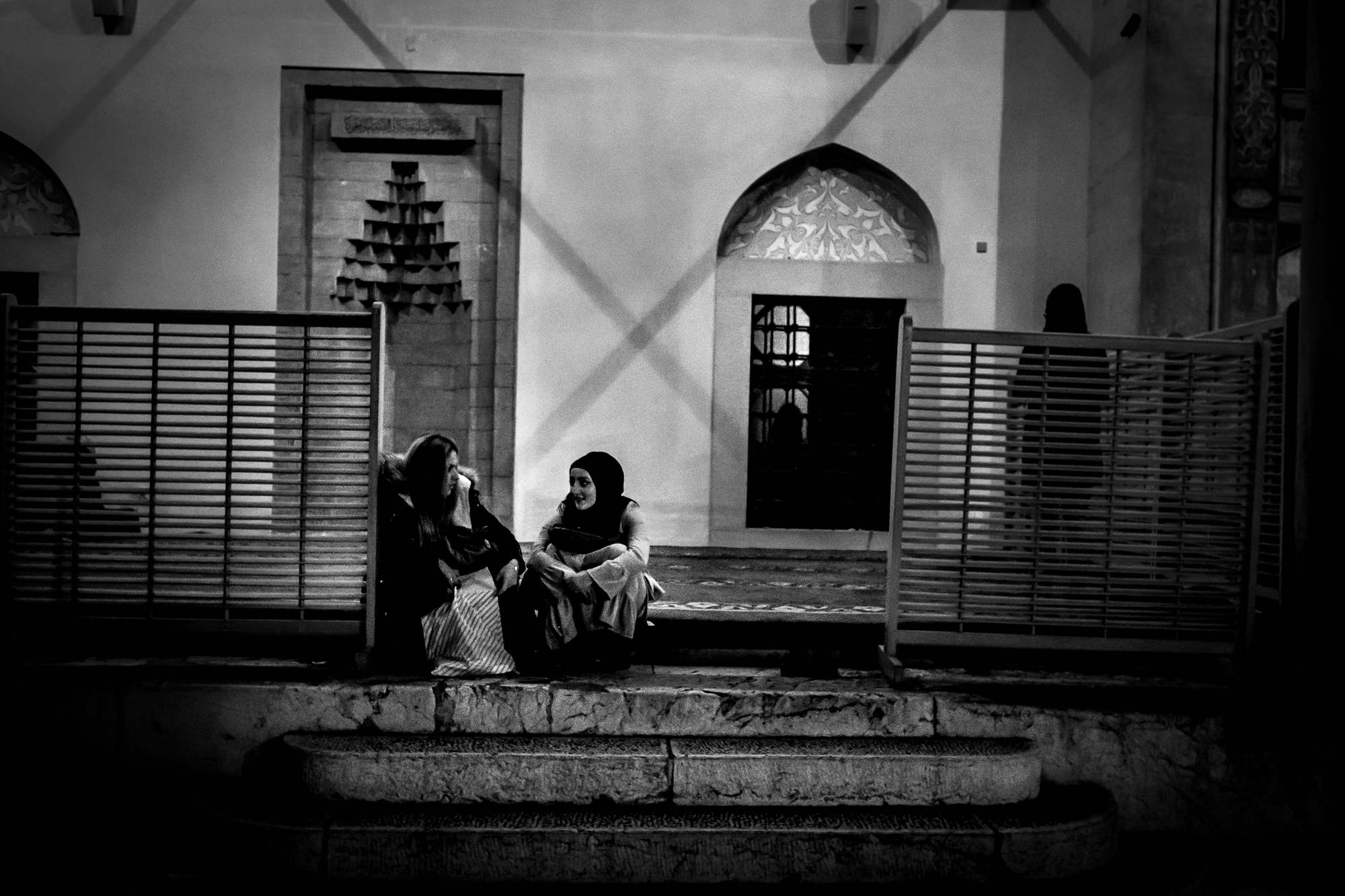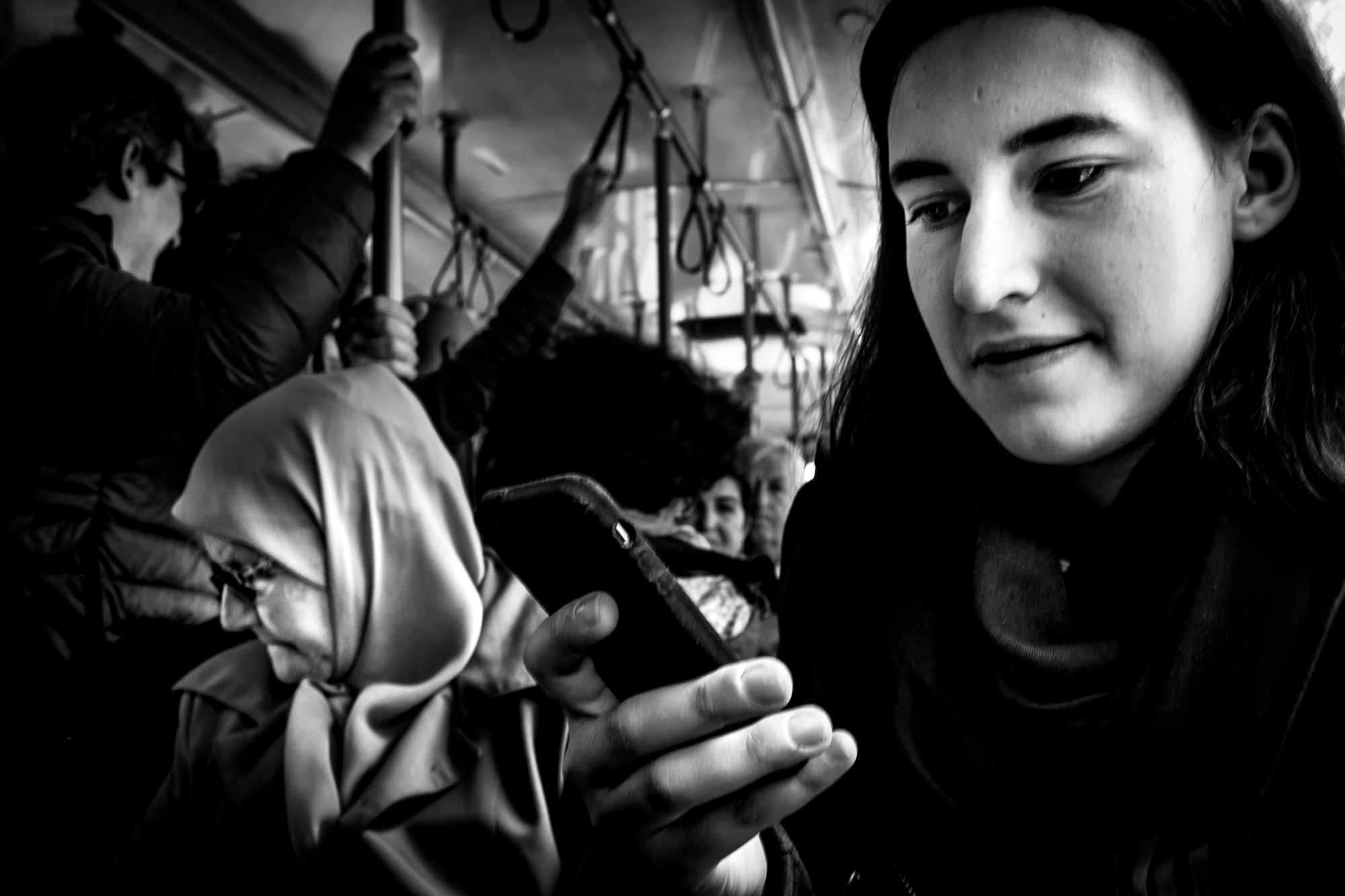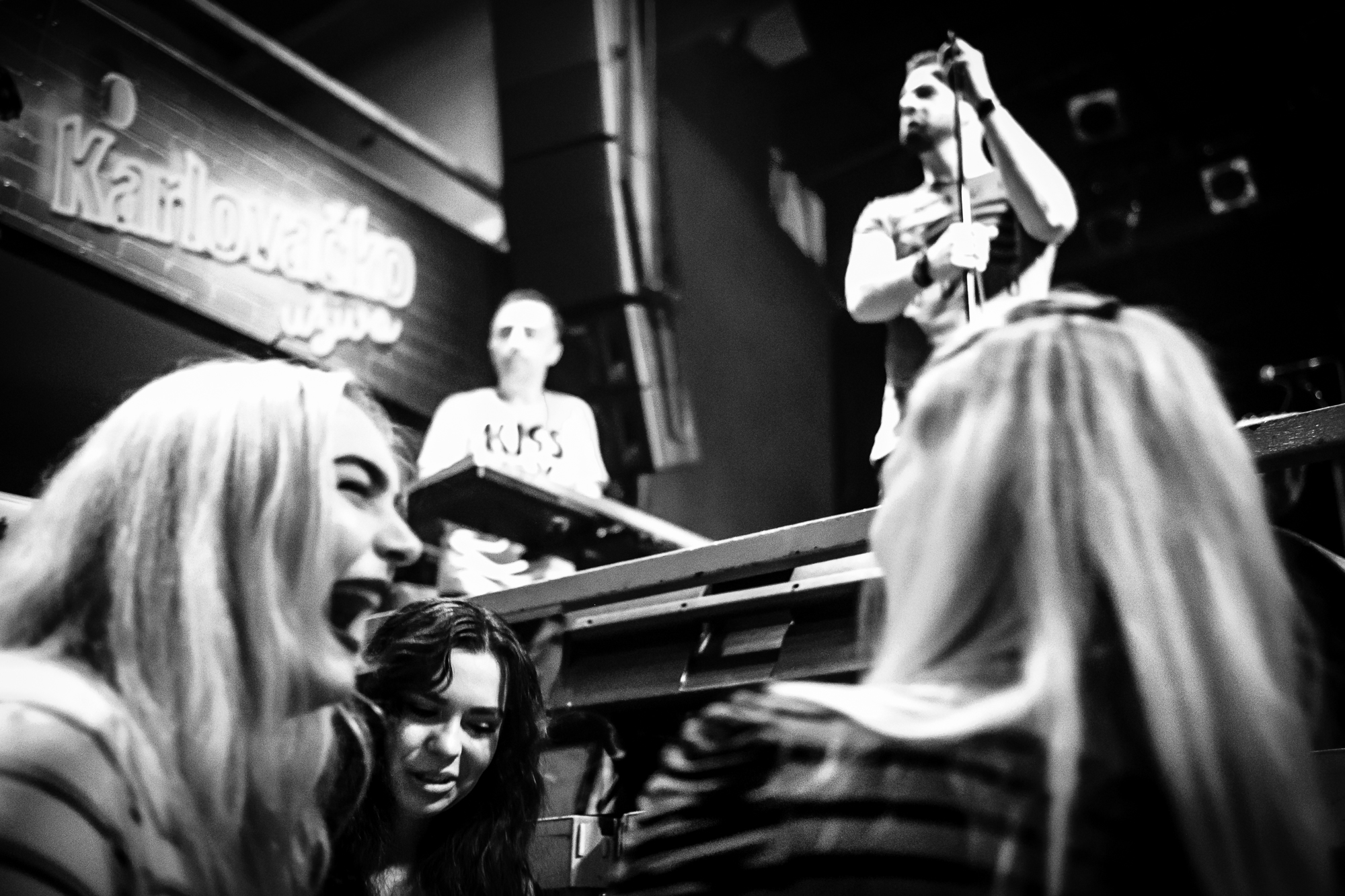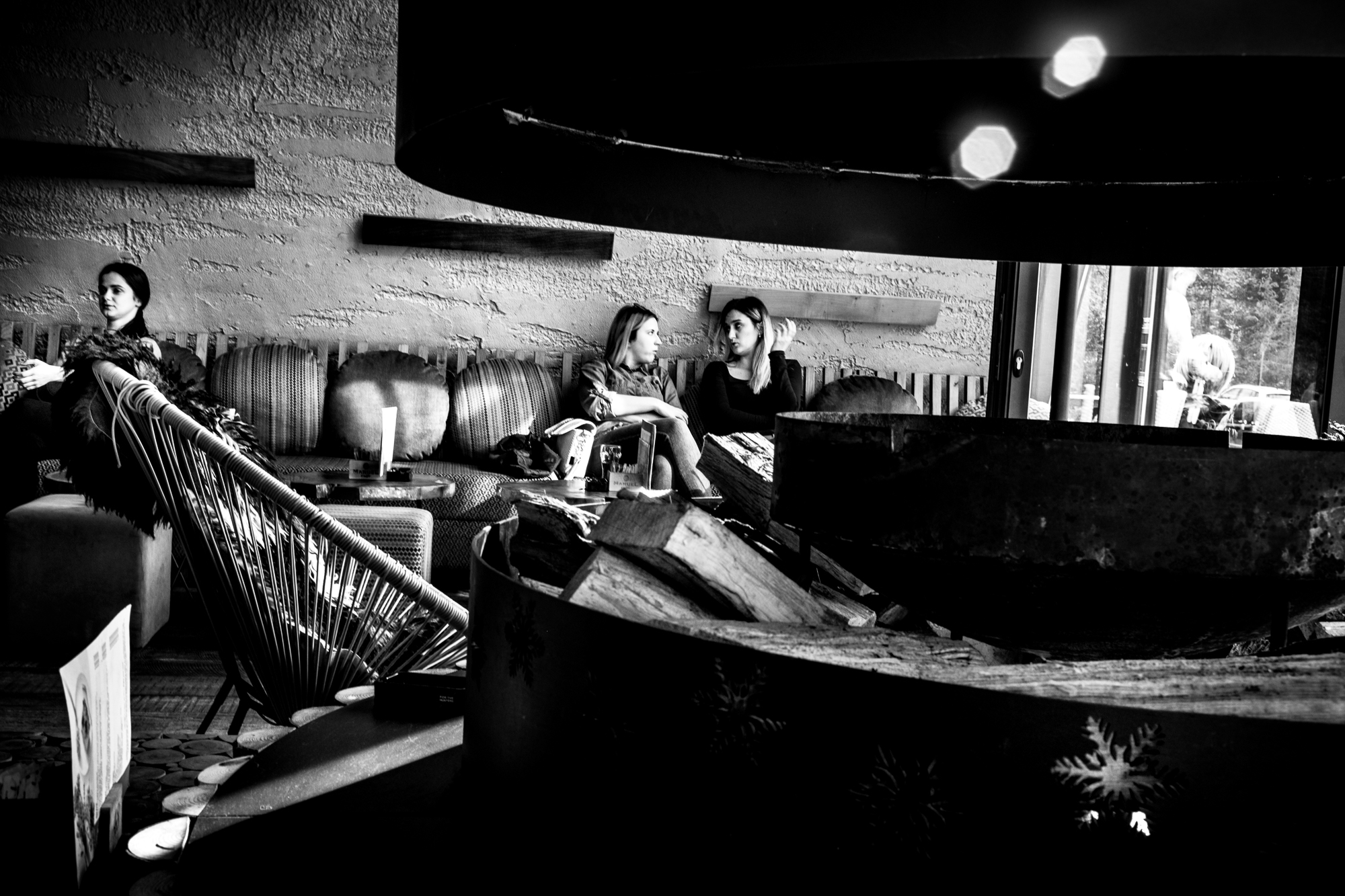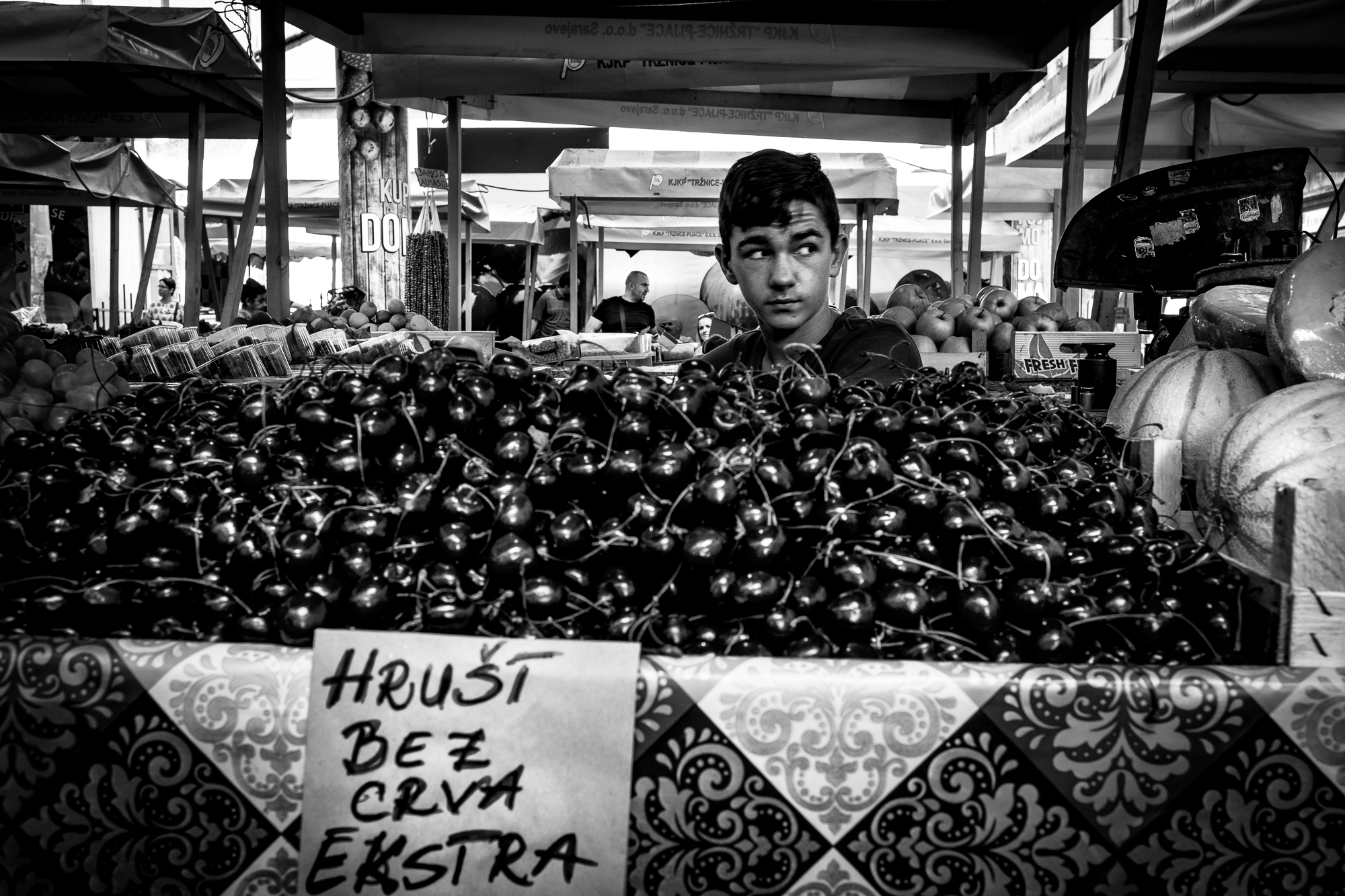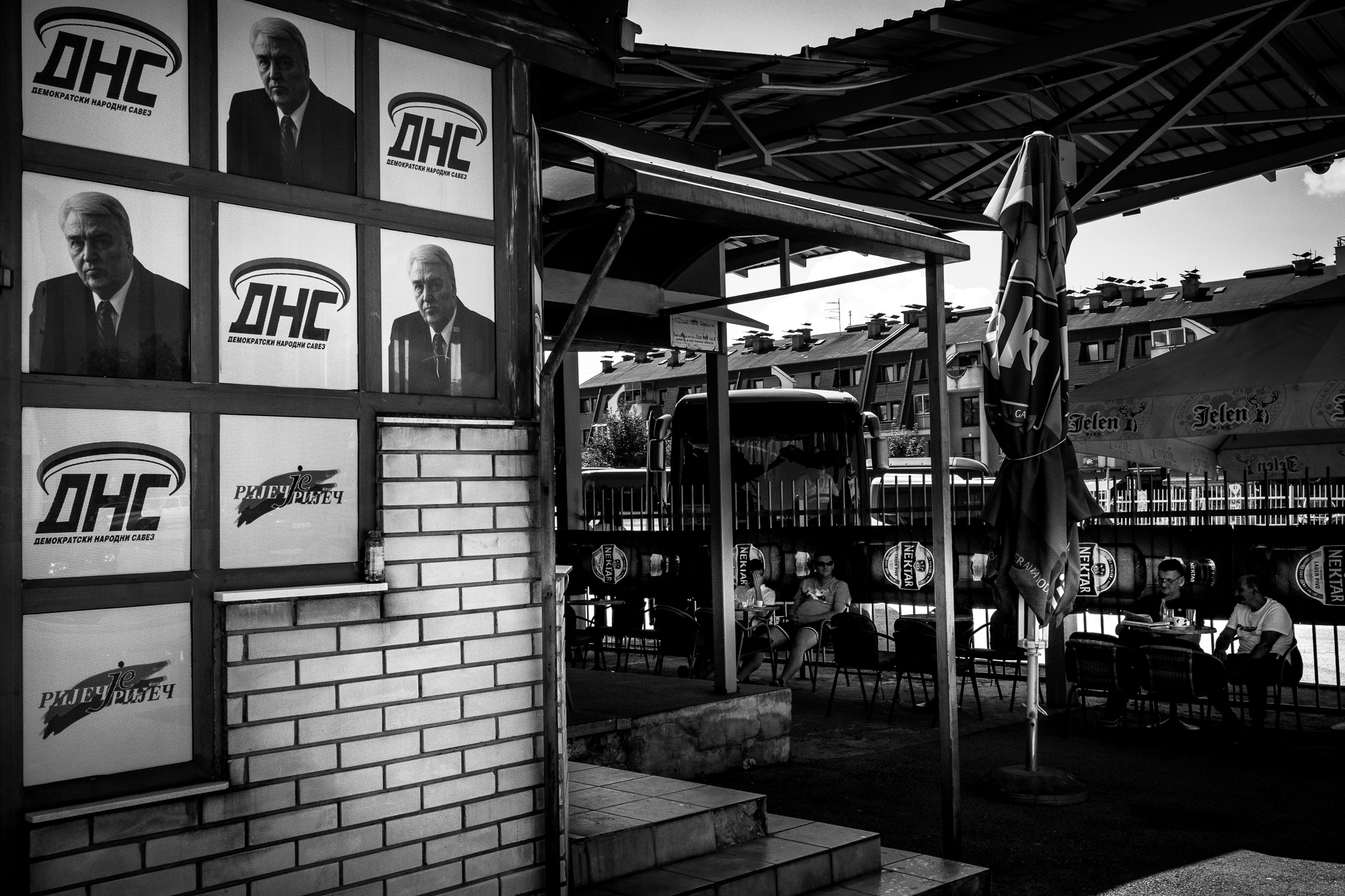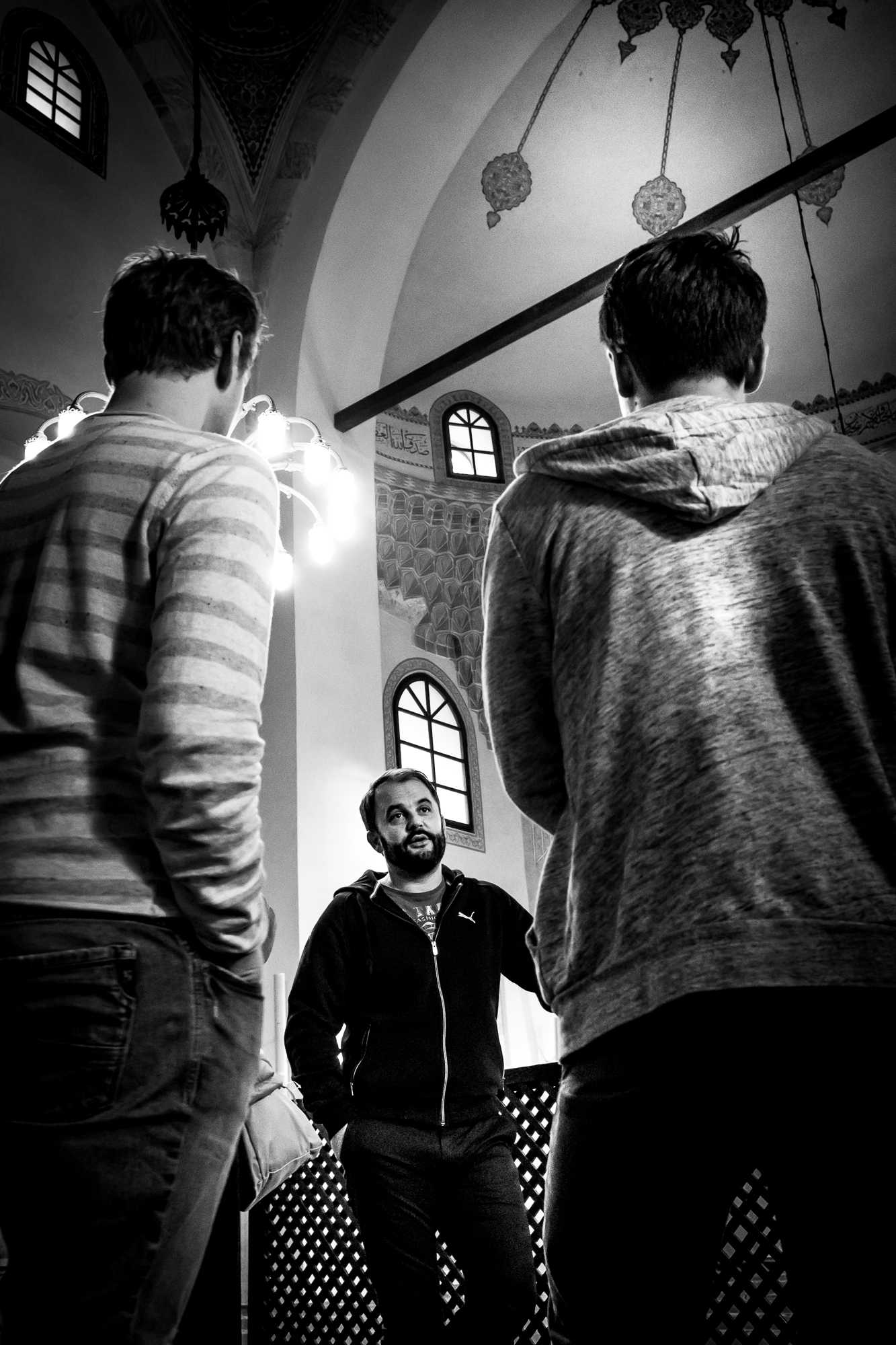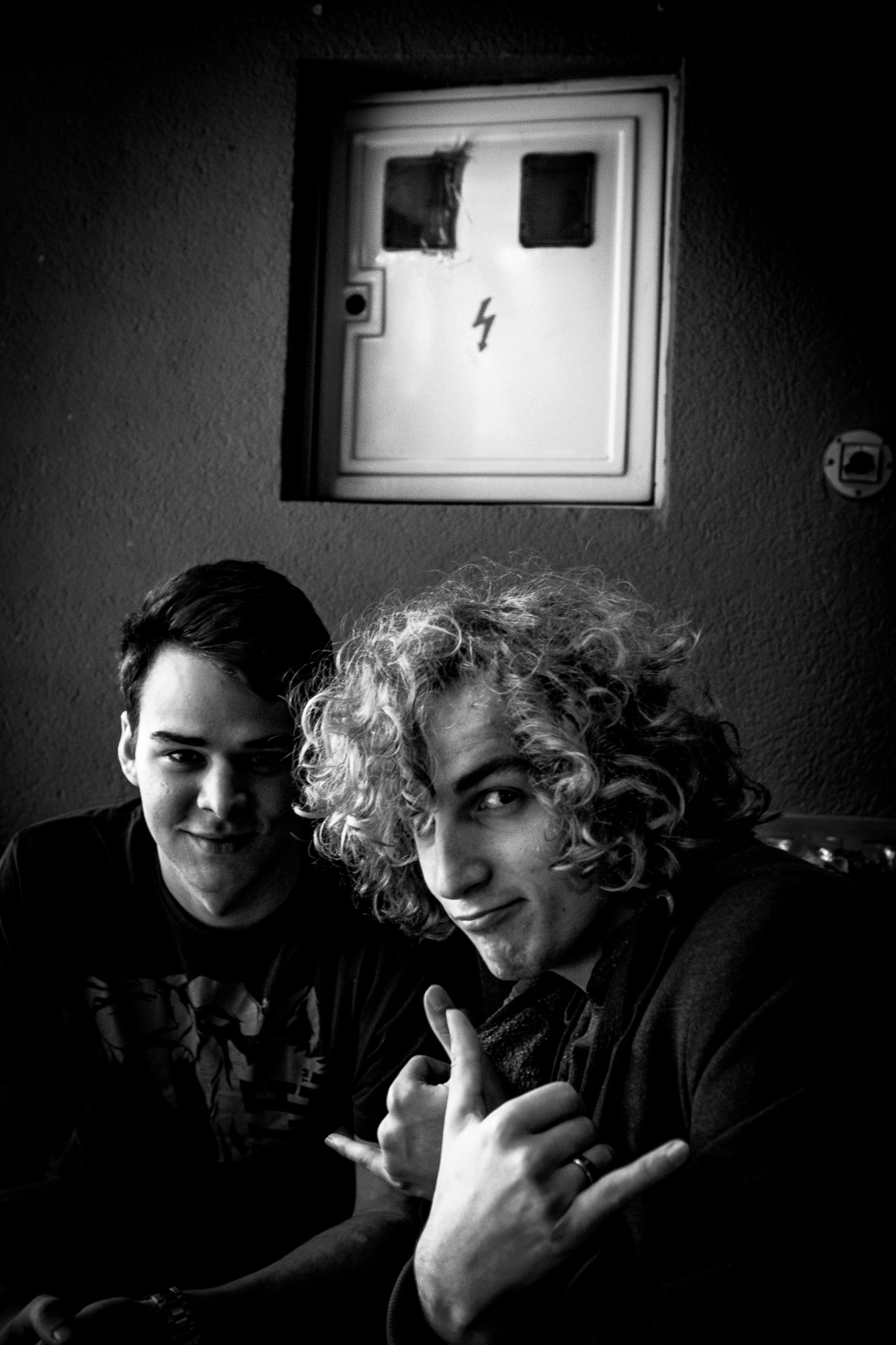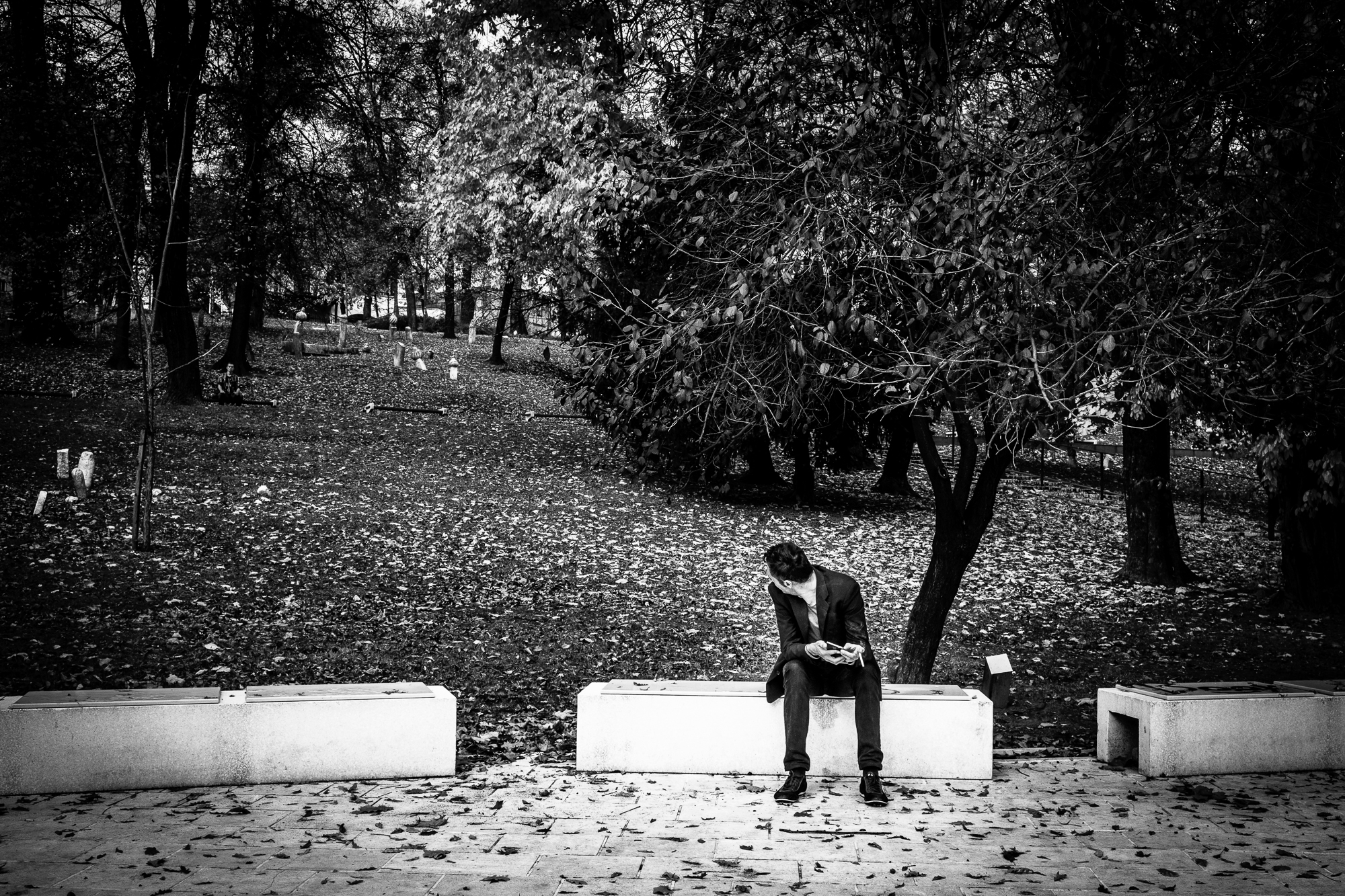Sarajevo 2000
Bosnia and Herzegovina
I came back to Sarajevo 10 and 25 years after the war had ended and what I could see over time were new shopping centres, new mosques and also a skyscraper marked the new skyline of the city. Next to these, I could still see public housing systems left as the war had left them, as if there to fulfill some kind of wartime interest by Japanese tourists and by those “poor” Arabic families who can fly to Bosnia from the middle east to crowd the spas and to take a break from the heat. The ethnic divide is endured by the establishment and national parties in power after the latest elections. The young, among them Nicolas and Iriza, refuse and fight such divisions y by organizing protests against the school system based on ethnicity by saying: “we were born after your war and we will fall in love one another generating mixed marriages, just as it was before us”. These kids, who were born after Dayton, unlike the people my age, won’t have to bear for their whole lives the five years of emptiness the war brought. Connected, open to the world just like any other young in Berlin or London, they are the millennials of Sarajevo who share just one doubt with the generations before them, stay or go ? Leaving a country put to sleep and motionless, which exactly as the post-war years, is unable to offer a future to its younger generations because of political stillness and economic stagnation. The unemployment rate for people aged 20-35 with a high school diploma earned in the last three years has reached 48,5 % (ranking among the highest in the world), forces guys like Armin to relocate to Sweden to work at Scania-Volvo , or Hervin, 17 a student of Electronic to finish his studies as soon as possible in order to join his father in Germany. Even people with a salary above the average or with government jobs prefer leaving Bosnia to work in countries where they can earn as much as 4 times more, as Vania tells me. She’s pregnant and with a job at the town municipality. Sources states that every day between 1 and 2 doctors leave the country. According to the president of the union, Kristina Bevanda, hospitals in Bosnia are experiencing a shortage of doctors because of this trend. These are among the situations which were generated by the Dayton agreement on November 21 1995, as a result of an institutional order which makes the country still and doesn’t offer any chance of economic development. As it is often the case, young people have itchy feet, they don’t want to wait and they want their country to be the 29th country of the European Union, the last chance of a bright future for the children of Sarajevo.
